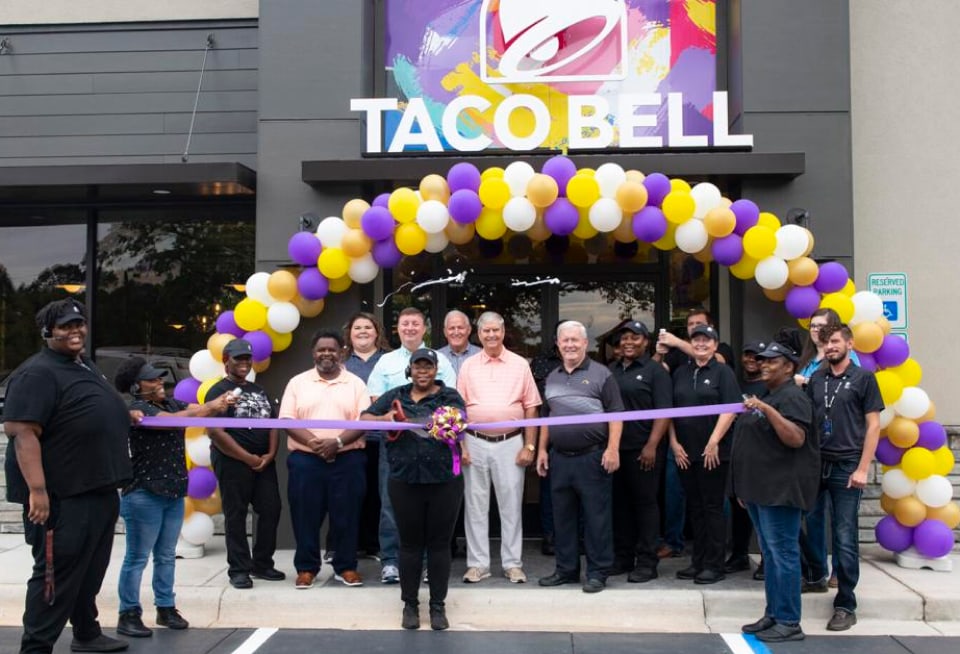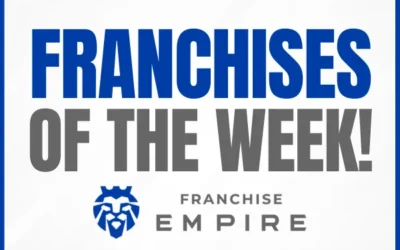Table of Contents
Taco Bell Franchise Costs & Profits (2025): Key Insights for Entrepreneurs
Quick Summary
Taco Bell, a cornerstone of Mexican-inspired fast food since its founding by Glen Bell in Downey, CA, in 1962, has evolved into a global powerhouse with over 8,200 locations worldwide. Just two years after opening, Taco Bell began its journey into franchising, quickly becoming synonymous with tacos, nachos, burritos, and the iconic Crunchwrap Supreme.
In response to changing consumer preferences, Taco Bell has broadened its appeal by incorporating healthier options, including vegan and vegetarian menu items. This adaptability and commitment to innovation make Taco Bell franchise opportunities particularly attractive to entrepreneurs seeking to invest in a forward-looking fast-food brand.
Key Takeaways
-
Taco Bell operates under Yum! Brands, Inc., alongside other major chains like KFC and Pizza Hut.
-
Franchisees can operate traditional, gas station, or express units, each tailored to unique customer needs.
-
Opening a franchise requires rigorous training, including 400 hours of on-the-job and 8 hours of classroom sessions.
-
Initial investment ranges from $575,600 to $3,370,100, with additional costs for royalties, marketing, and training fees.
-
Average annual revenue per unit is $1.6 million, with profits influenced by location and operational efficiency.
Is Taco Bell a Franchise?
Yes, Taco Bell operates as a franchise under Yum! Brands, Inc., which also owns KFC and Pizza Hut. While sharing a parent company, Taco Bell differentiates itself by focusing on Mexican-inspired fast food with a diverse menu.
Taco Bell locations emphasize convenience with smaller, drive-thru-centric outlets, making it a unique option within the fast-food sector. This focus positions Taco Bell as a standout brand in the Yum! Brands portfolio.
How Many Taco Bell Locations Are There?
Taco Bell boasts more than 8,200 locations globally, with a strong presence in the United States. Key states include California, Texas, Florida, and Ohio. The brand’s innovative offerings, such as the Doritos Locos Tacos, contribute significantly to its popularity.
Franchisees can operate several store types:
-
Traditional Units: Standalone stores with full kitchens, dine-in services, and drive-thru windows.
-
Gas Station Units: Located within gas stations or convenience stores, offering a limited menu.
-
Express Units: Compact stores with limited menu options, often situated in larger buildings like malls.
Taco Bell’s expansion into nearly 30 countries underscores its global appeal and continued success.
What Training Is Required to Open a Taco Bell?
Taco Bell’s rigorous training ensures franchisees are well-prepared to maintain high operational standards. Requirements include:
-
400 Hours of On-the-Job Training: Provides practical experience in daily operations.
-
8-Hour Classroom Training: Covers theoretical aspects such as business management, food safety, and customer service.
-
Ongoing Support: Includes marketing assistance and continuous development programs.
This comprehensive training ensures that franchisees are equipped to succeed and uphold Taco Bell’s reputation for quality and efficiency.
How Much Does It Cost to Open a Taco Bell?
Opening a Taco Bell franchise requires an investment ranging from $575,600 to $3,370,100. Costs vary based on location, size, and associated expenses such as construction, equipment, inventory, and marketing.
Key Financial Requirements:
-
Net Worth: $1.5 million
-
Liquid Assets: $750,000
Ongoing Fees:
-
Royalty Fee: 5.5% of store sales
-
Marketing Fee: Approximately 4.25%
-
Trainee Fee: $350 per staff member
Additional costs include staff salaries, local advertising, and operational expenses.
What Is the Taco Bell Franchise Fee?
The initial franchise fee for Taco Bell ranges from $25,000 to $45,000, granting franchisees the rights to the brand’s name, logo, and business model. Financing options are available for qualified applicants, making it accessible for those meeting Yum! Brands’ criteria.
How Much Does a Taco Bell Franchise Owner Make a Year?
On average, Taco Bell franchises generate $1.6 million in annual revenue. Franchise owners typically earn between $80,000 and $90,000 per year, with profits influenced by:
-
Location: High-traffic areas yield higher sales.
-
Operational Efficiency: Effective management reduces costs and increases profit margins.
-
Local Competition: Limited competition boosts revenue potential.
With strategic site selection and strong operational practices, many Taco Bell franchisees achieve substantial profitability.
Pros and Cons of Owning a Taco Bell Franchise
Pros:
-
Strong brand recognition and loyal customer base.
-
Diverse menu catering to changing consumer preferences.
-
Comprehensive training and ongoing support.
Cons:
-
High initial investment and financial requirements.
-
Competitive fast-food market.
-
Strict adherence to corporate guidelines.
Why Choose Taco Bell?
Taco Bell’s adaptability, innovation, and commitment to quality make it a leading choice for franchisees. As part of Yum! Brands, franchisees benefit from a robust support system and a proven business model.
Interested in exploring more franchise opportunities? Check out our guide to 5 Low-Cost Franchises That Make $1,000,000 and discover how to maximize your investment potential!
Here are 5 Low Cost Franchises that make $1,000,000 (Backed by Data)
Subscribe to the Franchise Empire Newsletter for the latest Franchise news & updates
Pet Services opportunity & HVAC franchise making 20 Million in Sales*
Hey Empire Builders, Welcome to this week’s Franchise Empire Newsletter, where we share specific franchise opportunities that we think are...
Franchise showing $613,000 of EBITDA* AND Recession Resistant Resale with Very Strong Brand
Hey Empire Builders, Welcome to this week’s Franchise Empire Newsletter, where we share specific franchise opportunities that we think are...
Crazy weird Franchise Opportunity & $1.8M Resale*
Hey Empire Builders, Welcome to this week’s Franchise Empire Newsletter, where we share specific franchise opportunities that we think are...
Service Franchise showing owner doing over $11M in Sales!*
Hey Empire Builders, Welcome to this week’s Franchise Empire Newsletter, where we share specific franchise opportunities that we think are...
Low Cost Franchise with Recurring Revenue & Resale with Manager in place
Hey Empire Builders, Welcome to this week’s Franchise Empire Newsletter, where we share specific franchise opportunities that we think are...
Franchise with Median sales of $4.9M (Top Franchisee did $33Million!)*
Hey Empire Builders, Welcome to this week’s Franchise Empire Newsletter, where we share specific franchise opportunities that we think are...


